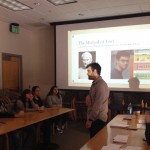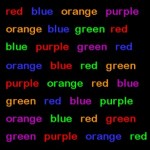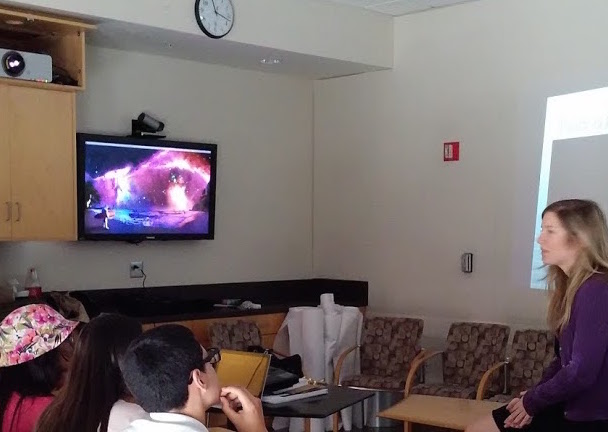Imagine your typical morning. You crave some sugary cereal to get you fueled for the day ahead. You dash out the door to realize you forgot your keys. And – especially for you teenagers – as you’re heading out to school, you realize that you’d rather go on a spontaneous adventure today… Is it possible that all these behaviors are connected? Psychology in Action outreach coordinators Jenna Cummings and Nicco Reggente, and PIA member Micah Johnson, answered this question for high school students from the greater Los Angeles area during Brain Awareness Week 2015. The event was coordinated by the UCLA Brain Research Institute, with over 50 students in attendance.
So what connects all these behaviors? The human brain of course! To provide a quick recap of the event, PIA used different activities (e.g., videos, virtual reality games, Stroop test) to spawn interest in:
- How the brain can work against our healthy eating goals. *Fast fact: Certain sweet high-fat foods strongly activate reward pathways in the brain including the mesolimbic dopamine pathway. No wonder it’s so hard to put down that cookie!
- How the brain is connected to perceptual processes, and how to improve perception and memory.*Fast fact: Virtual reality simulations and other fun games can actually improve your cognitive skills and memory abilities. For some examples, check out this scientifically backed site.
- How the brain changes as people develop and age.*Fast fact: When receiving rewards like sugar or money, the ventral striatum (a reward “hot spot” in the brain) is activated most strongly for teenagers compared to children and adults. Check out this video from UCLA researcher Dr. Adriana Galvan to learn more.
Overall, this event was a success, and we suspect several neuronal reward pathways were activated due to this dissemination of psychological science. Thanks to all the PIA contributors!
***If you are a psychology student and want to take a stab at outreach in your own community, check out this how-to-guide co-written by PIA outreach coordinator Jenna Cummings via the American Psychological Association Science Student Council!


